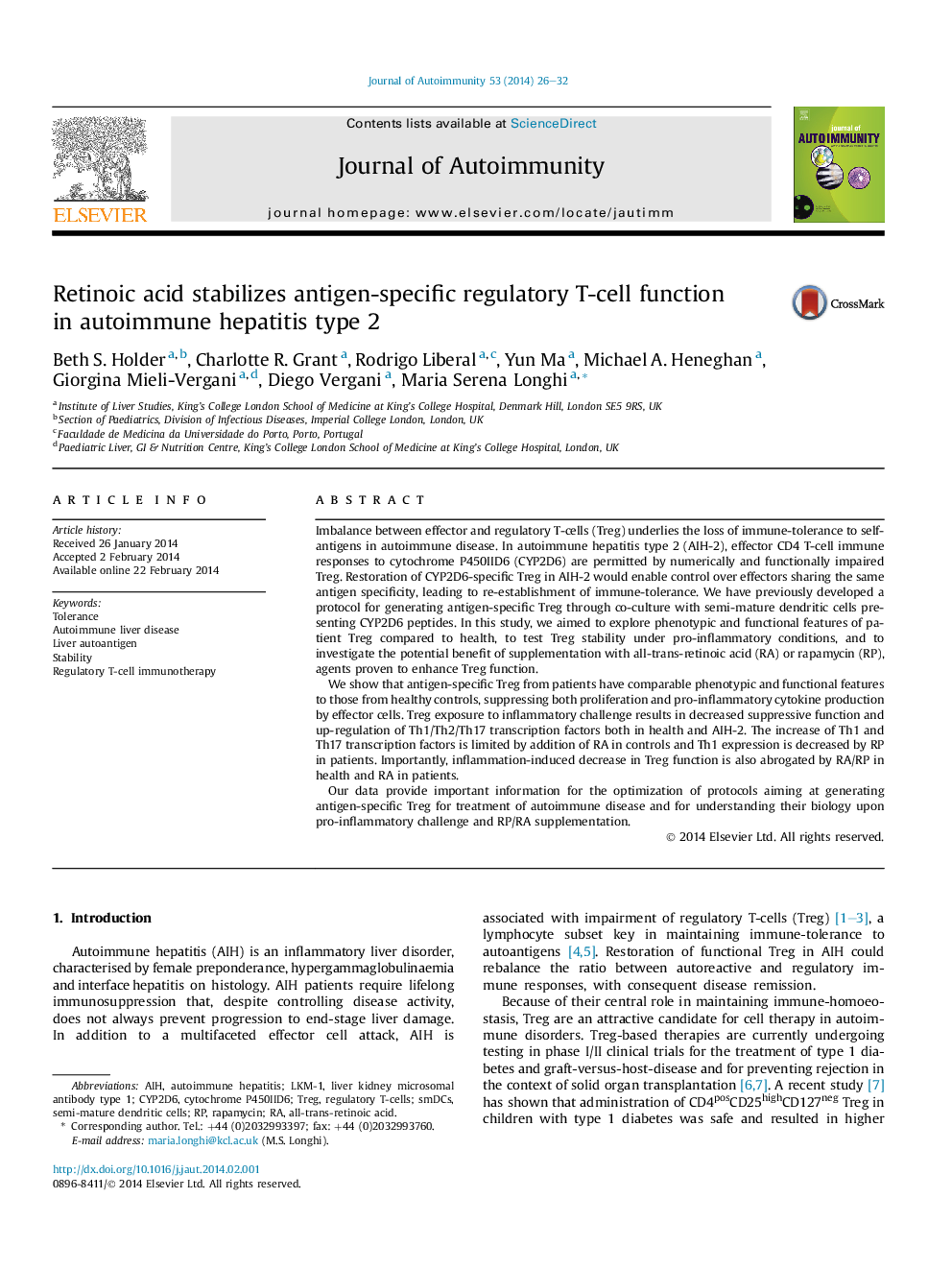| Article ID | Journal | Published Year | Pages | File Type |
|---|---|---|---|---|
| 3367749 | Journal of Autoimmunity | 2014 | 7 Pages |
•Antigen-specific Treg from AIH-2 and health are equally effective.•Exposure to inflammatory challenge impairs Treg suppression.•Decrease in Treg function is abrogated by RA/RP in health and RA in AIH-2.
Imbalance between effector and regulatory T-cells (Treg) underlies the loss of immune-tolerance to self-antigens in autoimmune disease. In autoimmune hepatitis type 2 (AIH-2), effector CD4 T-cell immune responses to cytochrome P450IID6 (CYP2D6) are permitted by numerically and functionally impaired Treg. Restoration of CYP2D6-specific Treg in AIH-2 would enable control over effectors sharing the same antigen specificity, leading to re-establishment of immune-tolerance. We have previously developed a protocol for generating antigen-specific Treg through co-culture with semi-mature dendritic cells presenting CYP2D6 peptides. In this study, we aimed to explore phenotypic and functional features of patient Treg compared to health, to test Treg stability under pro-inflammatory conditions, and to investigate the potential benefit of supplementation with all-trans-retinoic acid (RA) or rapamycin (RP), agents proven to enhance Treg function.We show that antigen-specific Treg from patients have comparable phenotypic and functional features to those from healthy controls, suppressing both proliferation and pro-inflammatory cytokine production by effector cells. Treg exposure to inflammatory challenge results in decreased suppressive function and up-regulation of Th1/Th2/Th17 transcription factors both in health and AIH-2. The increase of Th1 and Th17 transcription factors is limited by addition of RA in controls and Th1 expression is decreased by RP in patients. Importantly, inflammation-induced decrease in Treg function is also abrogated by RA/RP in health and RA in patients.Our data provide important information for the optimization of protocols aiming at generating antigen-specific Treg for treatment of autoimmune disease and for understanding their biology upon pro-inflammatory challenge and RP/RA supplementation.
